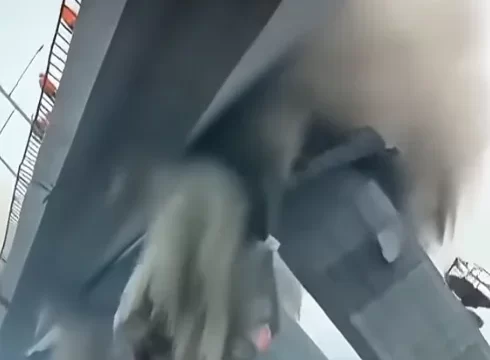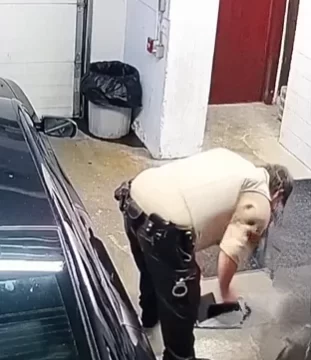When you travel to new places, even those just outside your hometown, you might encounter traditions you’ve never seen before. One such tradition, common in rural America, involves placing cowboy boots on fence posts. It’s a custom that many city dwellers are unfamiliar with. But before you decide to approach one of these boots, here’s a piece of advice: don’t touch it.

The Story Behind Boots on Fences
If you’ve ever driven through the countryside, you might have noticed cowboy boots stuck upside down on fence posts lining fields of crops or pastures. It’s an unusual sight, but it holds a significant meaning. These boots aren’t placed there randomly—they’re left there intentionally, often carrying a heartfelt message.
A Tribute to Beloved Horses
One of the main reasons for seeing cowboy boots on fences is to honor a cherished horse that has passed away. For many ranchers, horses are more than just animals; they’re trusted companions, much like dogs or cats are to pet owners. These animals play an important role in the lives of ranchers, who often develop deep bonds with them. When a horse dies, the loss can be just as painful as losing a family member.
To pay tribute to their beloved horse, ranchers sometimes place a boot on a fence post. In some cases, a pair of boots is hung. This gesture serves as a symbol of respect, allowing the rancher to commemorate the horse’s life in a simple yet meaningful way. It’s a way of saying goodbye, keeping the memory of the horse alive on the land where it once roamed.
Honoring People, Too
While cowboy boots on fences often represent horses, they can also symbolize people. In rural areas, it’s not uncommon to use boots as a way to honor ranch hands or other workers who have passed away or moved on. There’s an old saying in ranch culture: “a pair of boots for every hand.” This phrase reflects the hard work and dedication of those who help maintain the land.
When a worker passes away or leaves the ranch, a boot may be placed on a fence post to honor their contribution. It serves as a quiet, humble tribute to their efforts, marking the impact they’ve had on the ranch. It’s a way to show respect and remember those who’ve played a significant role in the life of the ranch.
Why You Should Leave These Boots Alone
If you come across a cowboy boot on a fence during your travels, the best thing to do is leave it alone. While it may seem like a harmless decoration, it’s likely a memorial that carries deep emotional weight. Disturbing it can be seen as disrespectful, particularly if it’s meant to honor the memory of a horse or person.
In rural culture, gestures like these are not to be taken lightly. They represent personal stories, memories, and moments of loss. By leaving the boots undisturbed, you’re showing respect for the tradition and the feelings behind it.
Respecting Local Traditions
Rural traditions, such as leaving boots on fences, reflect a way of life that is closely tied to the land and the animals that live on it. These customs offer a glimpse into the values and emotions of the people who maintain the land. As visitors, it’s important to approach such traditions with an open mind and a respectful attitude.
Just as we’d expect others to respect our customs, we should do the same when encountering new ones. Traditions like these often come from a place of deep meaning, representing love, loss, and remembrance.
A Symbol of Simplicity and Love
At its core, the practice of placing boots on fences is a simple yet profound act. It’s a way for ranchers to honor what they love and cherish, whether it’s a trusted horse or a valued worker. It’s not about making a grand gesture, but rather acknowledging the bond they’ve shared with those they’ve lost. It’s a reminder of the importance of relationships, hard work, and the passage of time.
Conclusion: Let the Boots Be
The next time you see a cowboy boot on a fence post, remember that it’s more than just an old piece of footwear. It’s a symbol of love, respect, and remembrance. Touching it or moving it could disrupt a meaningful tribute that deserves to be left alone. So, whether it’s a tribute to a beloved horse, a ranch hand, or a family member, let the boots be. By doing so, you honor the stories they represent and the traditions that keep them alive.





